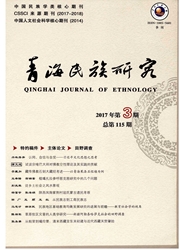

 中文摘要:
中文摘要:
人类学根植于古希腊经典,而人类学中国本土化实践也与经典研究的人类学转向密切相关.百年研究实践表明,关注并深入经典是人类学本土化实践的重要方向之一.在当今反思、重建文化传统与解决民族融合、生态危机特别是人际生态等重大国策问题面前,中国经典尤其是儒家经典作为最重要的思想资源,无疑是人类学本土化实践必须关注的“文本田野”.儒家经典人类学研究的核心方法四重证据法及其间性互补调和了证据真实与理解真实间的紧张关系,是人文社科研究中相对科学又具操作性的研究方法.然而实际操作中诸如物象叙事在何种程度上足以替代文字叙事,人类学和考古学对无文字社会的文化重构经验,在何种程度上适用于有文字社会,物证与书证矛盾时该如何权衡辨识等问题值得所有用人类学方法来研究经典者深思.
 英文摘要:
英文摘要:
Anthropology is rooted in ancient Greek classics, the practice of Chinese localization of anthropology connects closely with classic research about anthropology diversion. A hundred years of research and practice shows that focuses on the classics will be the future direction of anthropological localization. As the most important thought resources , Chinese classics, especially Confucian Classics undoubtedly should be the "text field" for localization of anthropology while reflect and rebuild traditional culture, solve the problem of national amalgamation, ecological crisis and especially interpersonal ecology. As the core way of Confucian anthropological study, quadruple evidence law and indirect complementation reconciles tension between evidence truth and understandable truth that is a scientific and operable research method of humanity and social sciences. In actual operation, the problems of on which degree that image narration can fully take place of letters narration, the degree of the cultural rebuilding experience of anthropology and archeology on pre-literate society can be applied to literal society, and how to balance and identify when there is contradiction between physical evidence and documentary evidence.
 同期刊论文项目
同期刊论文项目
 同项目期刊论文
同项目期刊论文
 期刊信息
期刊信息
